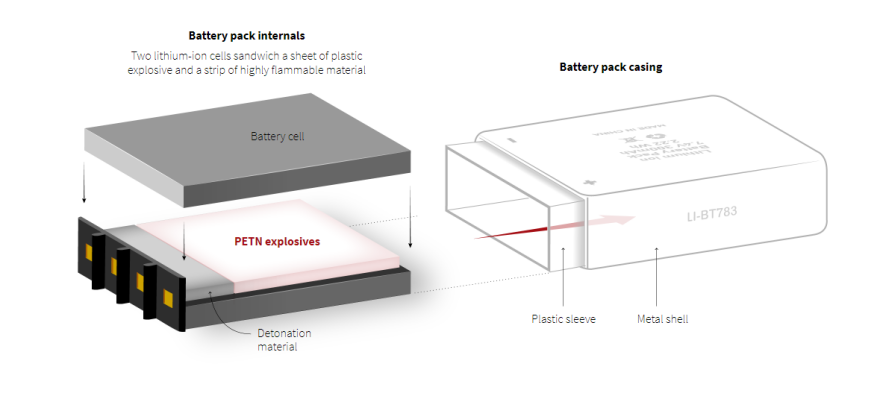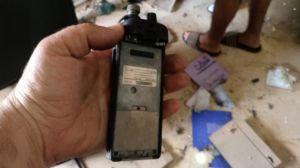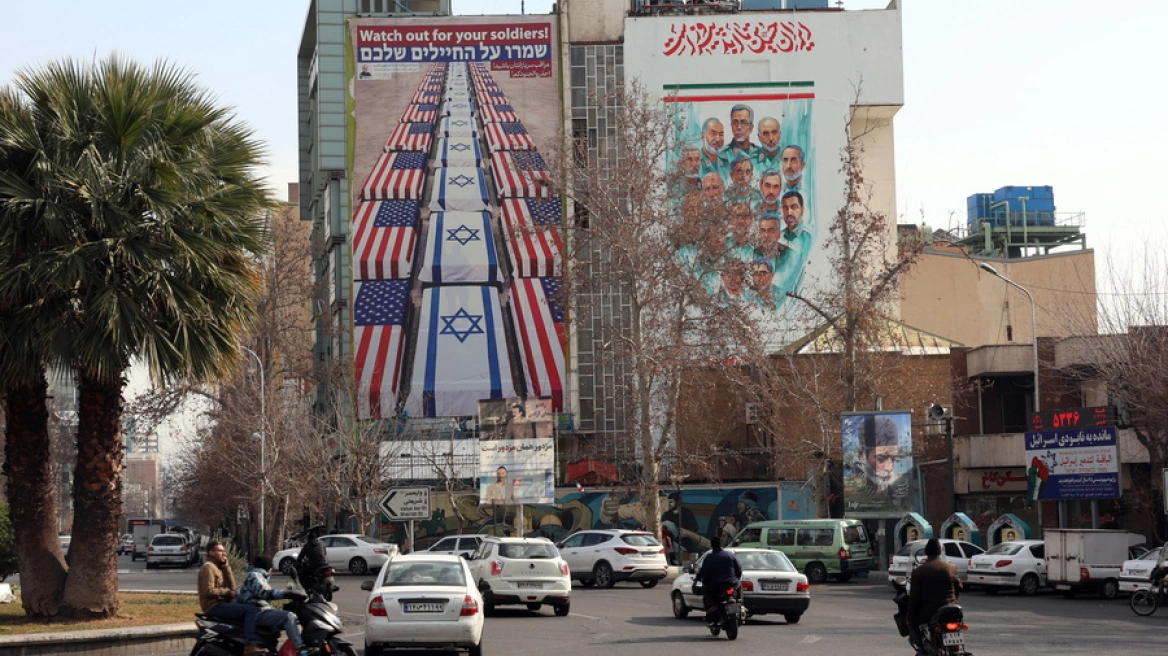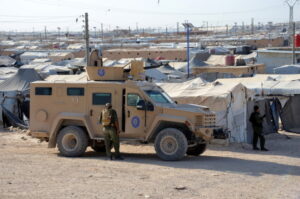Almost thirty days after the bombing in the heart of Beirut, which “crippled” Hezbollah, the information being released to the public is increasing the “myth” surrounding the way this operation was planned—by far the most spectacular operation in the history of intelligence services in the Middle East, at least.
Reuters, which has been investigating the “how and why” of this story since the attack on Beirut’s center on September 18, reports, citing sources from Hezbollah’s circle, that Israel’s weapon was not the pagers.
According to these sources, Mossad, understanding how the Shiite organization operates and having studied for years mainly how security checks are conducted, decided to create its own battery(!). This battery was rigged with the extremely powerful explosive PETN (pentaerythritol tetranitrate), specifically using 6 grams of it.
Additionally, as shown in the diagram below, Israel placed an extremely flammable plastic material as an accelerator between the explosives and the two poles of the battery.

In essence, Israel’s intelligence services created a “deadly sandwich” with an additional, critical and lethal innovation: it contained no metal components. This detail, as it turned out, made all the difference. During Hezbollah’s security checks using metal detectors, when the pagers arrived in Beirut, no alarming signs were detected. The packages were then transferred to Hezbollah’s secure locations and distributed among its members.
Another detail that has come to light, showcasing how Israel’s intelligence services meticulously planned each step to strike at Hezbollah’s core, involves the collaboration with a Taiwanese company that has exclusive distribution rights for pagers on the global market.
It is already known that Mossad created a shell company based in Budapest, but this was only to allow Israel’s intelligence services to approach the company in Taipei. Specifically, Mossad agents, posing as representatives of a company that had developed a new long-lasting battery, met with the owner of Apollo Systems to request a partnership.
Although the owner was not impressed by the battery’s design, he agreed to add this type of battery to the list of additional products that his customers could order. He himself never received nor sent any shipment of lethal batteries to customers or to Hezbollah, as he stated to international media outlets that approached him just hours after the chain of explosions in Beirut.

The Israelis not only created but also registered a code for their custom batteries, which was LI-BT783. To ensure that this specific battery would ultimately reach Hezbollah alongside the pagers, they launched an “electronic campaign” promoting the product’s capabilities. Thousands of reviews and posts on pager sales pages advertised these batteries as a “must-have,” which eventually became Hezbollah’s chosen option.
At the end of the process, Iran’s “long arm” paid a significant sum for the purchase of these pagers and batteries, which marked the beginning of the end for the organization, at least in the form and structure we know today.
Ask me anything
Explore related questions





